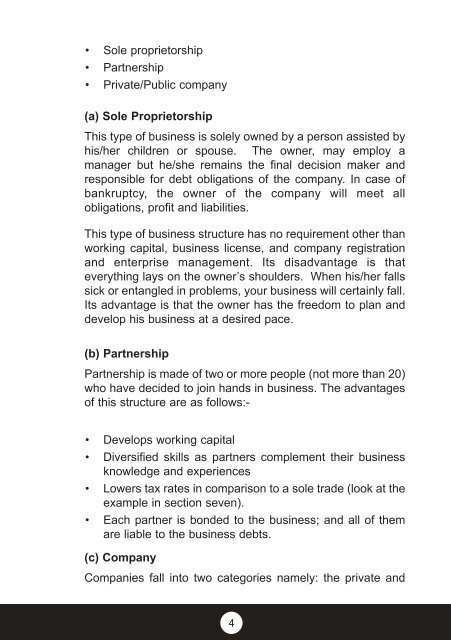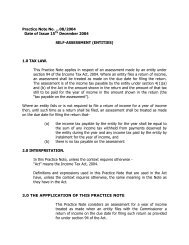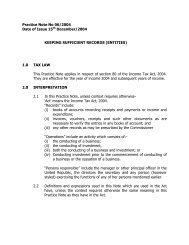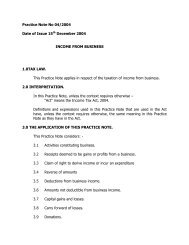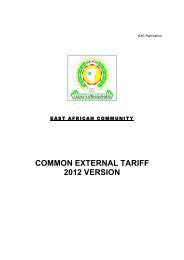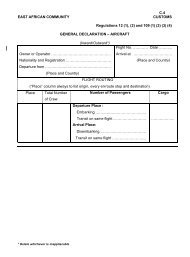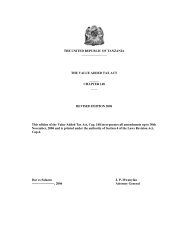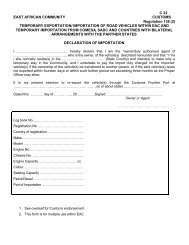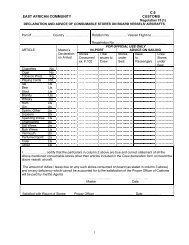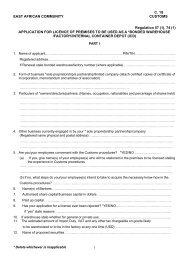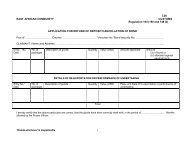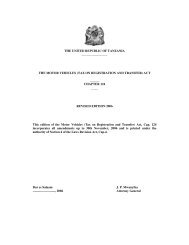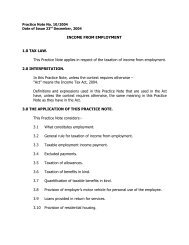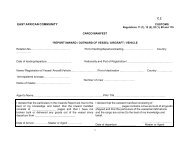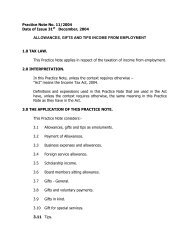Contents - Tanzania Revenue Authority
Contents - Tanzania Revenue Authority
Contents - Tanzania Revenue Authority
Create successful ePaper yourself
Turn your PDF publications into a flip-book with our unique Google optimized e-Paper software.
• Sole proprietorship<br />
• Partnership<br />
• Private/Public company<br />
(a) Sole Proprietorship<br />
This type of business is solely owned by a person assisted by<br />
his/her children or spouse. The owner, may employ a<br />
manager but he/she remains the final decision maker and<br />
responsible for debt obligations of the company. In case of<br />
bankruptcy, the owner of the company will meet all<br />
obligations, profit and liabilities.<br />
This type of business structure has no requirement other than<br />
working capital, business license, and company registration<br />
and enterprise management. Its disadvantage is that<br />
everything lays on the owner’s shoulders. When his/her falls<br />
sick or entangled in problems, your business will certainly fall.<br />
Its advantage is that the owner has the freedom to plan and<br />
develop his business at a desired pace.<br />
(b) Partnership<br />
Partnership is made of two or more people (not more than 20)<br />
who have decided to join hands in business. The advantages<br />
of this structure are as follows:-<br />
• Develops working capital<br />
• Diversified skills as partners complement their business<br />
knowledge and experiences<br />
• Lowers tax rates in comparison to a sole trade (look at the<br />
example in section seven).<br />
• Each partner is bonded to the business; and all of them<br />
are liable to the business debts.<br />
(c) Company<br />
Companies fall into two categories namely: the private and<br />
4


